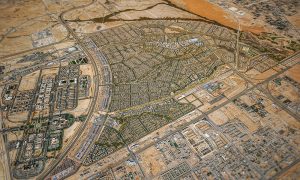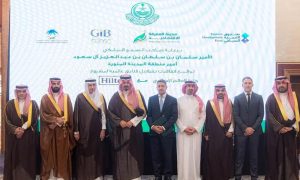Abu Dhabi real estate database ‘to improve green building policy’
Enhanced data-sharing to highlight positive aspects of sustainable developments, says representative of Estidama initiative

The introduction of a shared database of Abu Dhabi real estate developments will help improve green building policies, according to a senior representative of the UAE capital’s sustainable building initiative.
Yasmeen Al Rashedi, planning manager at Estidama, said the new database will also help highlight the positive aspects of green development.
“We’re now beginning, with a number of projects in and around Abu Dhabi, to monitor and measure the output of results of the buildings that have already been built. Data-sharing for those projects [is] already in place, which is fantastic, because… it begins to demonstrate and showcase the achievements of green development,” Rashedi told MEConstructionNews.com.
“It also allows us to analyse what those results are, in order to feed them to the policies and development team, and improve the policies [of Estidama and the Abu Dhabi Urban Planning Council].”
READ MORE: Developers sign data-sharing charter for Abu Dhabi projects
The Urban Planning Council (UPC) in October announced the creation of a database covering Abu Dhabi’s commercial, retail, hospitality and residential supply and demand.
This real-time information will be used to reconfirm the land-use projections in the UPC’s plans, along with the many research reports that the UPC has been working on, to fine-tune the existing supply and demand data that is currently being utilised.
Over time, this data will allow the UPC to compile more detailed land-use reports and projections, and provide frequent data updates to decision makers on the status of Abu Dhabi’s real estate sector.
“This is a key milestone,” said Falah Al Ahbabi, Director General of the UPC, at the time of the announcement.
“The new database builds on the strong foundations for data collection already in place by deepening the level of data shared and the frequency of collection. Seeing 19 of the emirate’s key developers work together is indicative that the real estate community understands the mutual benefit of collaboration,” he added.
Rashedi said that the database would allow Estidama to gauge the experience of project owners and their capabilities when it comes to being able to achieve the savings targets laid out by the green building agency.
“We’ll know the experience of the project owners, in being able to apply those credits. If we find that there are credits that are really easy to achieve, then we can push those,” she said.
“If we know what those things are, and we’re getting feedback from the industry, then we’re able to again modify and evolve the policies and requirements within the rating systems so as to be able to push those boundaries and to drive the targets that we have set for ourselves, or that the government is setting for developments right now.”
READ MORE: Developers sign data-sharing charter for Abu Dhabi projects

























